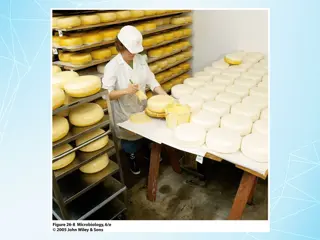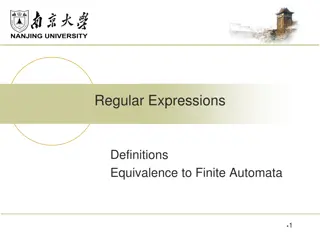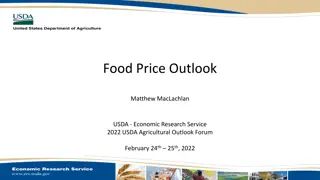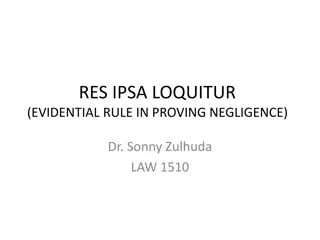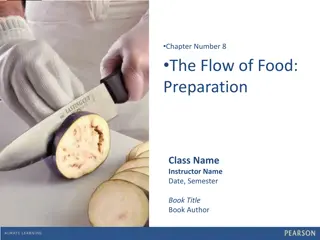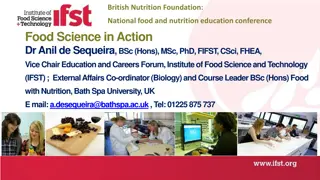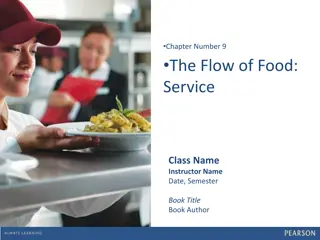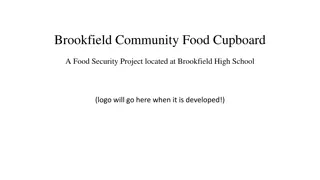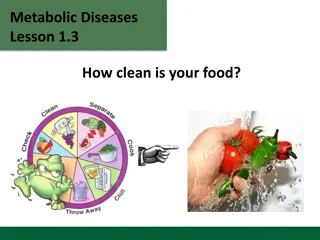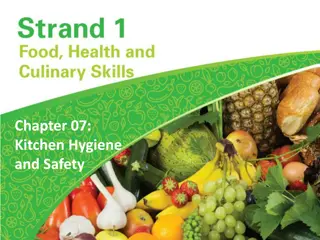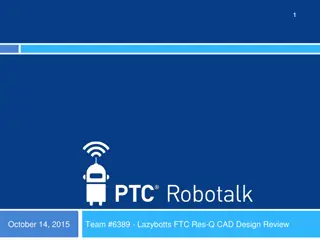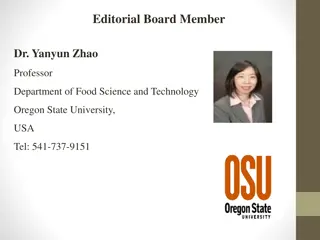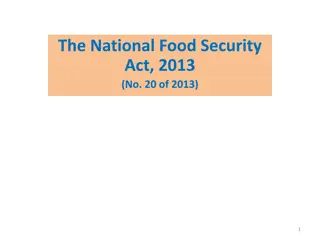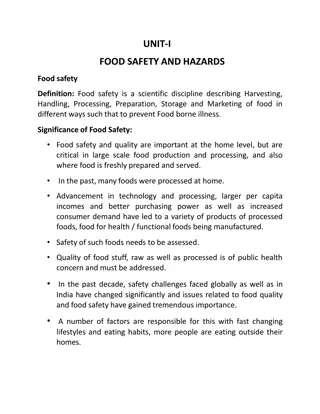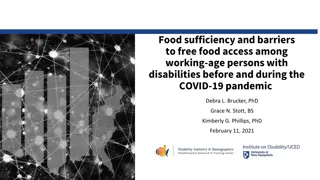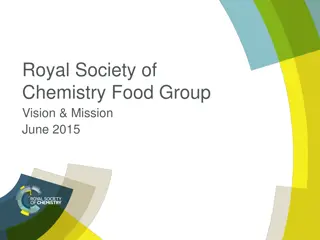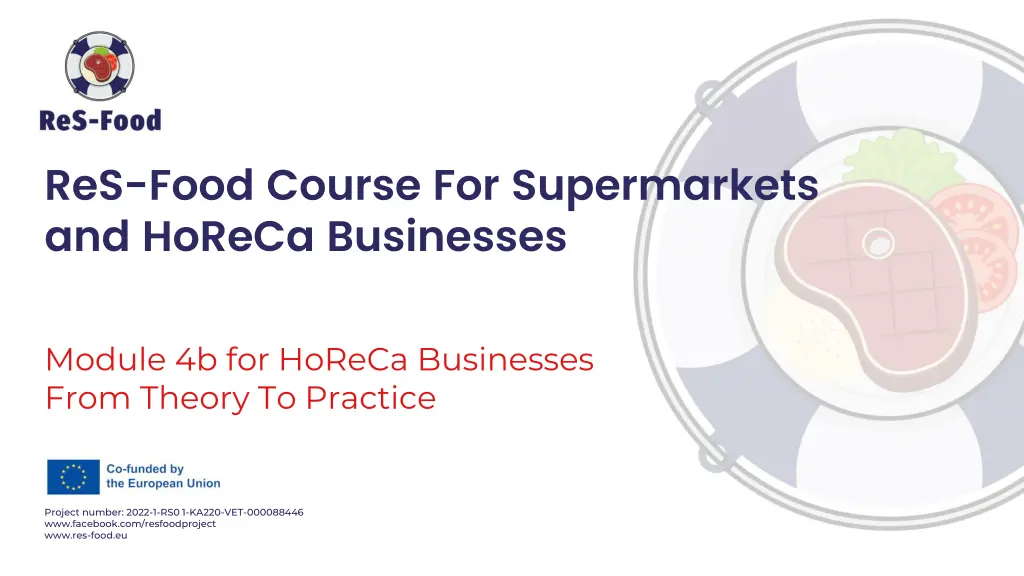
Practical Strategies for Minimizing Food Waste in HoReCa Businesses
Learn effective strategies for minimizing food waste in HoReCa businesses by planning catering services, preventing food wastage during storage, following food safety guidelines, and cross-using ingredients efficiently. Enhance sustainability practices and reduce environmental impacts in the food service sector.
Download Presentation

Please find below an Image/Link to download the presentation.
The content on the website is provided AS IS for your information and personal use only. It may not be sold, licensed, or shared on other websites without obtaining consent from the author. If you encounter any issues during the download, it is possible that the publisher has removed the file from their server.
You are allowed to download the files provided on this website for personal or commercial use, subject to the condition that they are used lawfully. All files are the property of their respective owners.
The content on the website is provided AS IS for your information and personal use only. It may not be sold, licensed, or shared on other websites without obtaining consent from the author.
E N D
Presentation Transcript
ReS-Food Course For Supermarkets and HoReCa Businesses Module 4b for HoReCa Businesses From Theory To Practice Project number: 2022-1-RS0 1-KA220-VET-000088446 www.facebook.com/resfoodproject www.res-food.eu
Introduction The aim of the model The aim of this module is to provide HoReCa businesses with practical strategies to minimise food waste during storage and display. Learning objectives To learn the planning of catering, menus, portion control and buffet-style operations, preventing food wastage, using the stock management and food storage techniques and practices in the HoReCasector.
How to plan catering? Design a menu using seasonal, locally sourced ingredients to minimize waste and support sustainability including versatile ingredients to minimise overstocking Control the portion introducing portion control measures food preparation in small batches using offcuts and leftovers in other recipes or as ingredients in stocks, soups or sauces efficient cooking techniques Clear signs and labeling in case of buffet setup Donation Feedback from guests and staff identifing areas for improvement and refine catering processes. information on improvements in food preservation techniques, analysis of food waste data and sustainable practices can optimise efficiency and reduce environmental impacts
How to prevent food wastage during food storage? Organisation of the storage arrangingfood items in storage areas according to their shelf life and expiration dates clean, dry, well-ventilated storage areas Monitoring and recording of temperature Using moisture-absorbing materials or absorbent materials Proper packaging, airtight containers, vacuum-sealed bags or food storage containers Keeping an inventory of ingredients (FIFO first-in, first-out) Regular training for staff
Food safety guidelines Staff training Personal hygiene Food storage Cross-contamination prevention Temperature control Cleaning and sanitizing Bug control Allergen management Traceability and recordkeeping Emergency preparedness Food transportation
How to cross-use ingredients and surplus food? Design menus with overlapping ingredients Menu flexibility Repurpose surplus ingredients into new dishes Clear communication in the kitchen Keeping an inventory Collaboration with providers and charities Providing information on commitment to sustainability
The European Commission support for the production of this presentation does not consitute endorsement of the contents, which reflects the views only of the authors, and the Commission cannot be held responsible for any use which may be made of the information contained therein. Project number: 2022-1-RS0 1-KA220-VET-000088446 www.facebook.com/resfoodproject www.res-food.eu

